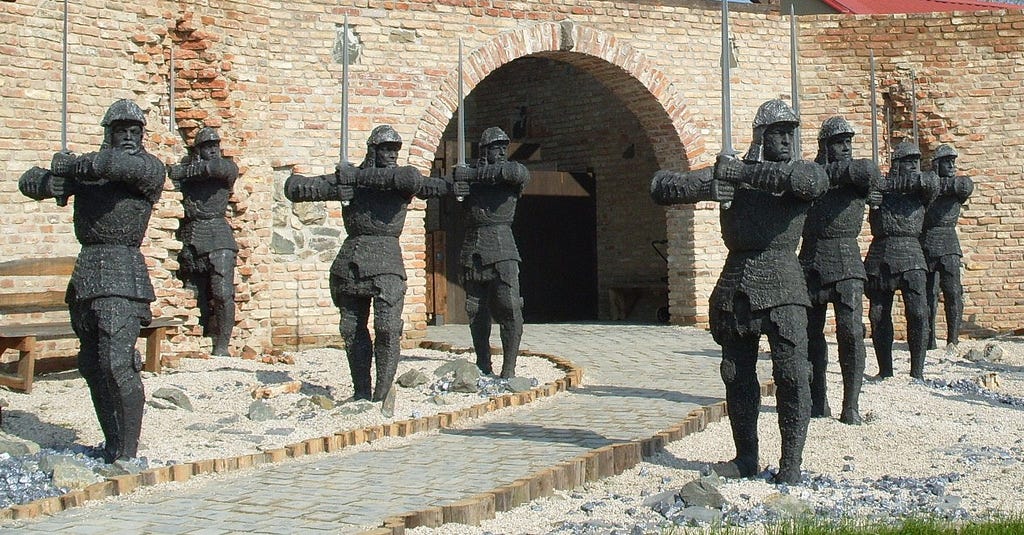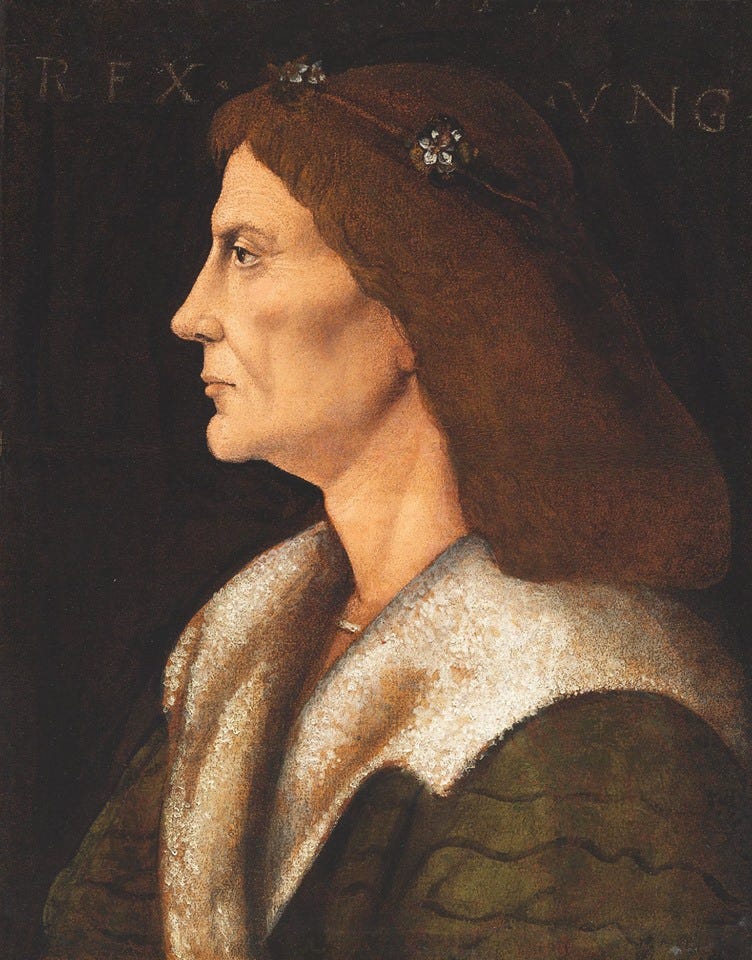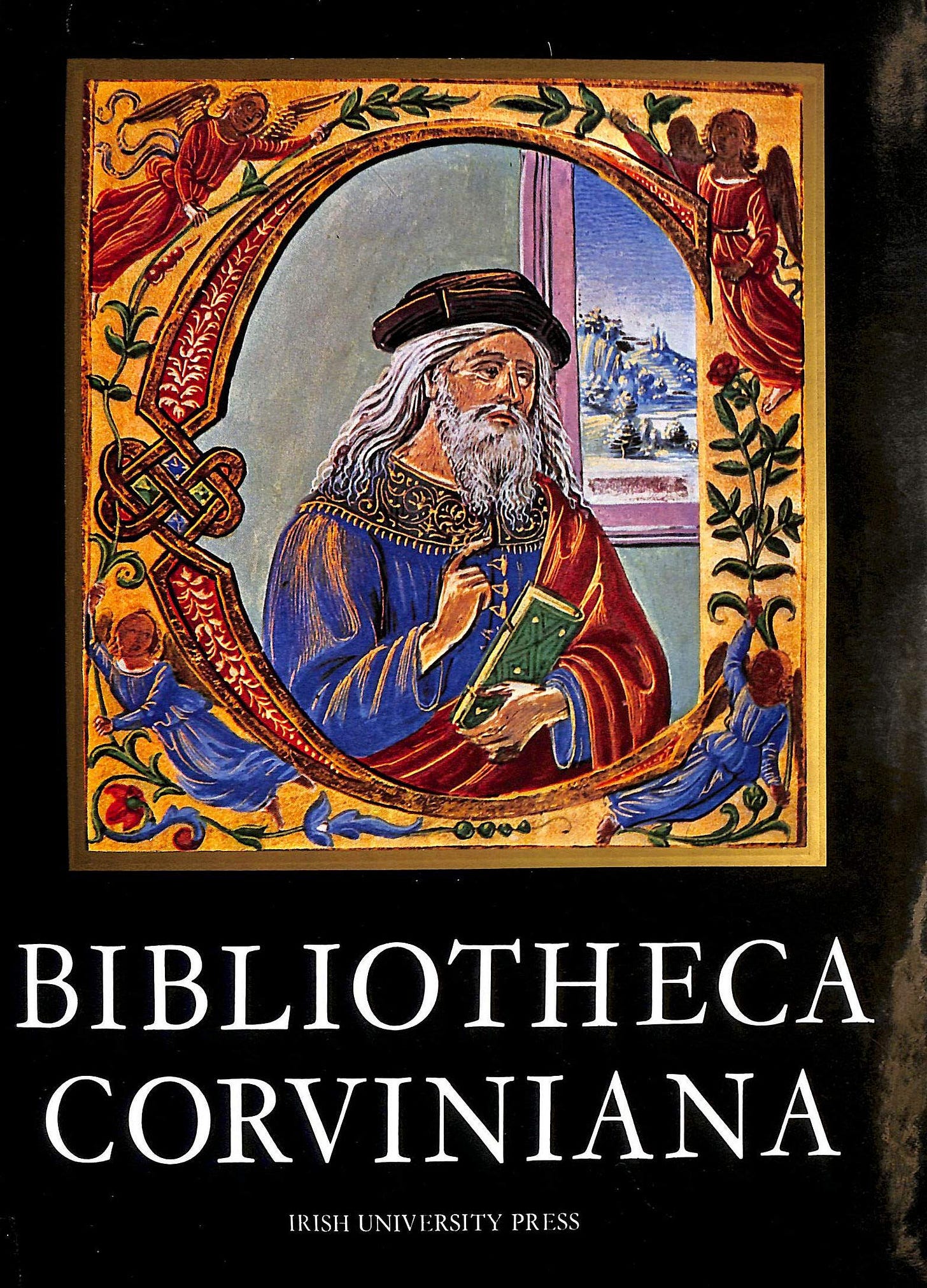Library of the Raven King-Bibliotheca Corviniana
Destroyed by the Ottoman sack of Budapest in 1526.

The Raven King and leader of the Black Army, Matthias Corvinus (b.1443 as Matthias Hunyadi in Cluj, Transylvania) sent emissaries to Florence to order special volumes of the rediscovered classics, written, illustrated, and bound by hand. According to a visitor, the Bibliotheca Corvina filled two halls of the palace at Buda, one containing the works of Greek authors, the other those of the Latin writers.1
The Bibliotheca Corvina was the second greatest collection of books in Europe in the Renaissance period, after that of the Vatican. It represented the literary production and reflected the state of knowledge and arts of the Renaissance. 2 It was destroyed by the Ottoman sack of Budapest in 1526 and many books dispersed throughout Europe.

Reference:
Csapodi, Csaba, and Klára Csapodiné Gárdonyi. Bibliotheca Corviniana. [Budapest]: Helikon, 1990.
Tanner, Marcus. The Raven King : Matthias Corvinus and the Fate of His Lost Library. New Haven (Conn.) [etc.]: Yale University Press, 2009.
The Bibliotheca Corviniana Collection. Memory of the World, UNESCO.




Articles such as this have unintended positive consequences. In following links I was reminded of the richness of history found in and around Buda and Pest, and how this battle against the Ottoman Empire broke the will of the Ottoman military. Its eventual reversal and escape from Europe, pushed back into Asia Minor, left a heritage of Islamic states - Bosnia and Herzegovina, Albania, other enclaves - that are largely non-practicing but still reviled by their neighbors. The presence of a German-language ad in one link reminded me that all of Central Europe, including what are today Hungary, Czech Republic, and most of north Italy, maintain a German heritage. I recall on my first visit to Bolzano/Bozen, the locals complaining about the Italians. We were more than 100 km inside Italy.